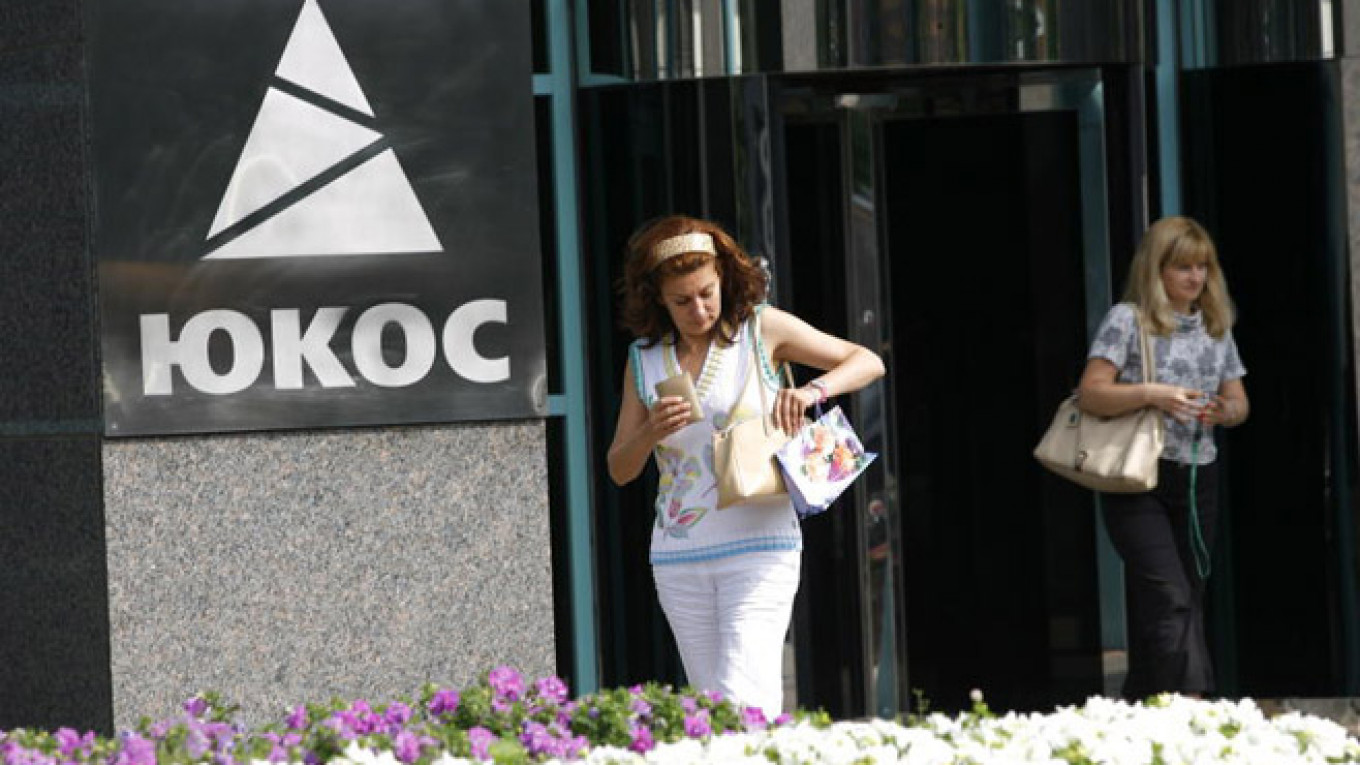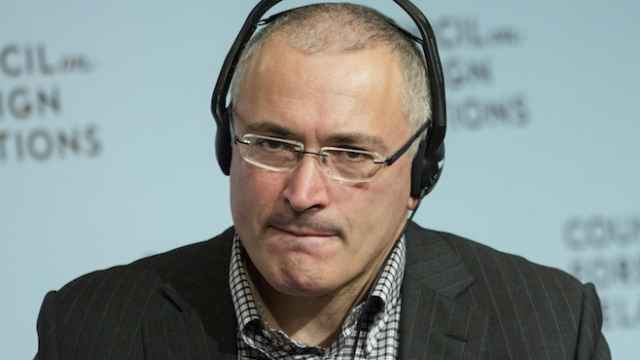Former investors in defunct oil firm Yukos will ask U.S. and EU courts to expropriate Russian-owned assets on their territory as part of a $50 billion damages ruling made by the Hague arbitration court in June, German newspaper Der Spiegel reported Monday.
Yukos was bankrupted and dismembered in the 2000s as the Russian government seized key oil assets from oligarchs who had snapped them up on the cheap during Russia's chaotic 1990s privatizations. Two of Yukos' owners, Mikhail Khodorkovsky and Platon Lebedev, spent about a decade in prison. Others fled, joining overseas investors fighting for compensation.
Tim Osborne, the lawyer representing the interests of exiled Russian billionaires and former Yukos shareholders Leonid Nevzlin and Vladmir Dubov, said the case for expropriating Russian assets would soon be brought before German courts, Russian business daily Vedomosti cited Der Spiegel as saying.
Osborne added that the group was also moving to bring similar cases to courts in the U.S., Britain, the Netherlands and France.
If German courts decide in the investors' favor, fees paid by German energy firms for Russian gas could be handed over to the plaintiffs, according to Der Spiegel. Russia's state-controlled Gazprom provides 38 percent of Germany's natural gas.
In June, the Hague ordered Moscow to pay $50 billion to Yukos investors after ruling that Russia had broken the Energy Charter Treaty when it nationalized the company to pay for its alleged tax evasion. The court also demanded that the Russian government pay court fees of $65 million.
In its ruling, the court wrote: "The primary objective of the Russian Federation was not to collect taxes but rather to bankrupt Yukos and appropriate its valuable assets."
Russia's Finance Ministry said at the time that it planned to appeal against the decision, calling it "politically biased."
Before its demise, Yukos was one of Russia's largest oil and gas companies and was the first to embrace transparent management and seek Western finance and participation. After state prosecutors exploded the company with charges of massive tax evasion its key assets were hived off to small state-owned oil firm Rosneft. Then a small time player in the energy market, Rosneft has become one of the world's biggest oil majors.
In July the European Court of Human Rights ruled that Russia must pay ex-Yukos shareholders 1.86 billion euros ($2.37 billion) in compensation for the nationalization of Yukos, a decision that the Finance Ministry rejected as unfair.
A Message from The Moscow Times:
Dear readers,
We are facing unprecedented challenges. Russia's Prosecutor General's Office has designated The Moscow Times as an "undesirable" organization, criminalizing our work and putting our staff at risk of prosecution. This follows our earlier unjust labeling as a "foreign agent."
These actions are direct attempts to silence independent journalism in Russia. The authorities claim our work "discredits the decisions of the Russian leadership." We see things differently: we strive to provide accurate, unbiased reporting on Russia.
We, the journalists of The Moscow Times, refuse to be silenced. But to continue our work, we need your help.
Your support, no matter how small, makes a world of difference. If you can, please support us monthly starting from just $2. It's quick to set up, and every contribution makes a significant impact.
By supporting The Moscow Times, you're defending open, independent journalism in the face of repression. Thank you for standing with us.
Remind me later.






